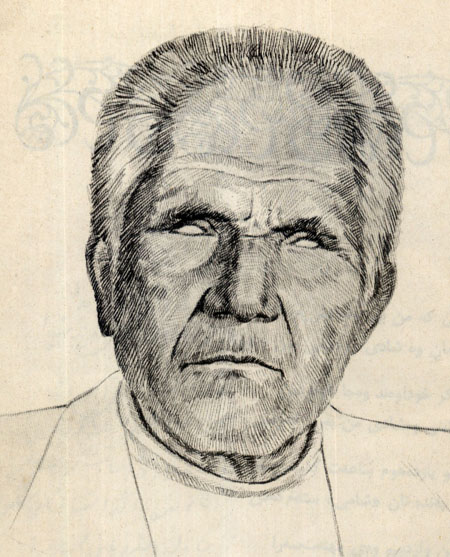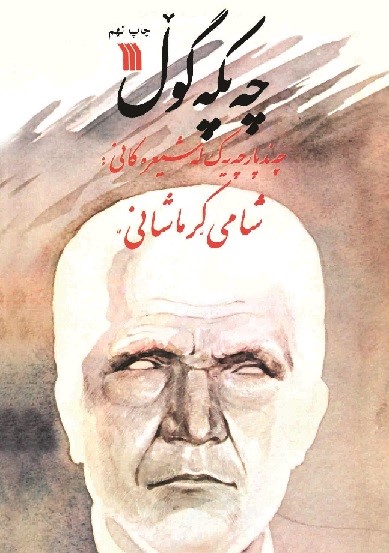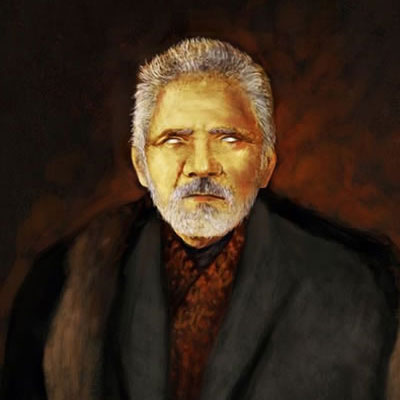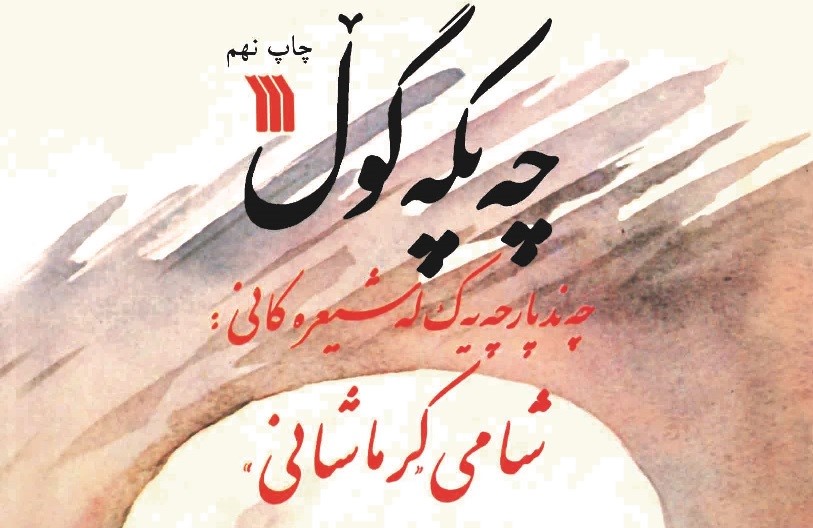Shahmirad Mushtaq Vatandoust, also known as Shami Kermashani, is one of the most prominent contemporary poets of Kermashan and one of the first people to write poetry in the Kalhori dialect, Kurdish language, in the 20th century.
Shami was born in 1917 in Kermashan. He lost his parents as a child and lost sight in both eyes at the age of four due to Smallpox disease and never could see until he died.
He grew up in poverty in Kermashan and lived and died in poverty. Therefore, the sorrow of the poor of Kurdistan society was reflected in his poems. In his youth, Shami became acquainted with Persian poetry, especially the poems of Hafiz, Saadi, and Khayyam, with the help of a number of elders and scholars of Kermashan, including Agha Shamsaddin Ali Agha, also known as Shamsul-Ulama.
In those days it was a common habit for people to recite Kurdish and Persian poems in Cafes and markets in Kermashan and it encouraged him to like poems and feel he can also write poems.

At that time, the poetry of Almas Khan Kandulayi, Gholamreza Arkavazi, and several other Kurdish poets was popular in Kermanshah. Shami was motivated by memorizing their poems and started writing poems in Kalhori.
Shami skillfully used the language of ordinary people in his poems and drew the content of his poems from the pains and sufferings of the people around him. Social problems, especially poverty, were reflected in his poems.

Shami's poems have been collected by three people and published under three different names and styles.
Chapkagul Diwan:
Some pieces of Shami Kermashani's poems. Prepared by Majed Mardukh Rohani. It was first published in 1985 by Soroush Press in Tehran and second time in 2011 by Musasiri Press in Mahabad. Mamosta Hazhar wrote an introduction for this.
Diwani Shami Kermashani, collected by Mohammad Ali Sultani and written an introduction. Published by Soha Press in 1995 in Tehran.
Shami Kermashani's poems were collected by Farshid Yousfi and published by Mahtab Gharb Press in 2018.
In an introduction to Shami's book "Chapkagul", Mamosta Hazhar describes Shami as follows:
I read Shami's collection of poems "Kurdi Kermashani". It is covered with the sound of pain and jokes, cold breath, from a warm and cold heart, the poison of the bitter life full of pain, the play, and the sharpness of the world.
To be frank the poems are pure and nice and of a very beautiful style. The only point that can be seen is that he is Kurdish and the poem is in Kurdish. Thankfully, being Kurd or Kurdish in the world market is nothing and no one looks at it.

Hazhar continues: If Shami had not belonged to the Kurdish nation, if he had not been so destitute and poor, if he had the visual ability, if and if and if... - unfortunately thousands of possibilities and wishes have never turned out, he could be heard in many directions.
In my opinion, only the piece of poetry he wrote about “Kranishini” and depicted the life of the lower class, the lack of luck, the life of the homeless, the hopeless, the confused, and the hopeless is the best testimony to art, talent, and the beauty and spirit of a poet is addressed.
Shami became famous for his poetry "Kranishini", which became popular in Kermashan and surrounding cities.









